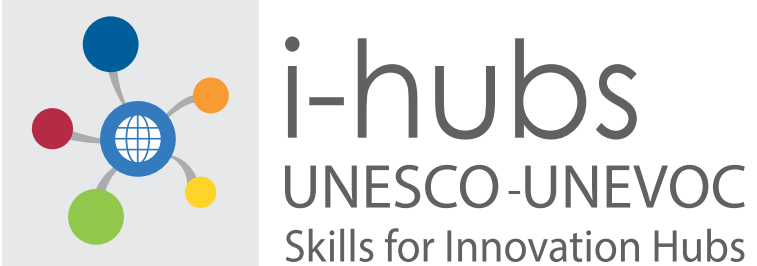
The UNESCO-UNEVOC International Centre: Who We Are | What We Do | Working With Us | Get in Touch
The UNEVOC Network: Learn About the Network | UNEVOC Network Directory
For Members: UNEVOC Centre Dashboard
Thematic Areas: Inclusion and Youth | Digital Transformation | Private Sector Engagement | SDGs and Greening TVET
Our Key Programmes & Projects: BILT: Bridging Innovation and Learning in TVET | Building TVET resilience | TVET Leadership Programme | WYSD: World Youth Skills Day
Past Activities: COVID-19 response | i-hubs project | TVET Global Forums | Virtual Conferences | YEM Knowledge Portal
Our Services & Resources: Publications | TVET Forum | TVET Country Profiles | TVETipedia Glossary | Innovative and Promising Practices | Toolkits for TVET Providers | Entrepreneurial Learning Guide
Events: Major TVET Events | UNEVOC Network News
March 28-29, 2019
Bonn, Germany

To highlight the different ways through which innovation contributes to the development of TVET, the UNESCO-UNEVOC International Centre launched its Skills for Innovation Hubs project on 28-29 March 2019 in Bonn. Representatives from 10 pilot institutions (listed below) met to exchange experiences and participate in the official project launch. The pilot institutions were selected from the UNEVOC network based on their proven experience and commitment to innovation, specifically in the sectors of entrepreneurship, digitalization, and greening. This previous experience is fundamental to the implementation modality, which relies on expertise pooling, knowledge sharing, and peer review to develop innovative practices and learning materials.
The specific benefit of the i-hubs project is to affirm that TVET innovation is about more than delivering skills; TVET contributes to innovation by being an active part of the innovation process in businesses, communities, and schools. This is a major adjustment in the TVET institutional attitude and a powerful driver for relations between TVET institutions and the ecosystem.
The main objective of the launch meeting is to ensure a common understanding of the rationale, objectives, activities, and expected outputs foreseen in the i-hubs initiative among the ten pilot institutions, the UNESCO TVET community and the UNESCO-UNEVOC team. This common understanding and purpose is intended also to create the basis for an active core network, mutual learning and capacity development among key players actively engaged in innovation in TVET.
List of i-hubs Pilot Institutions: